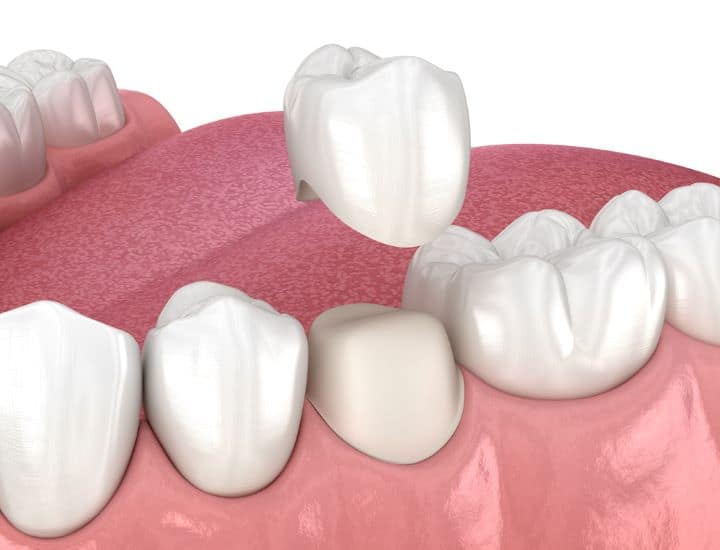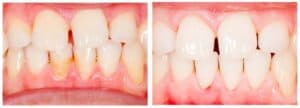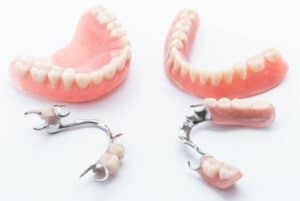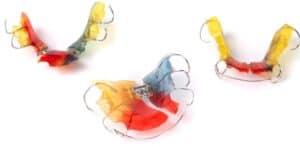Blood oozing out from your gums while eating and brushing should be alarming.
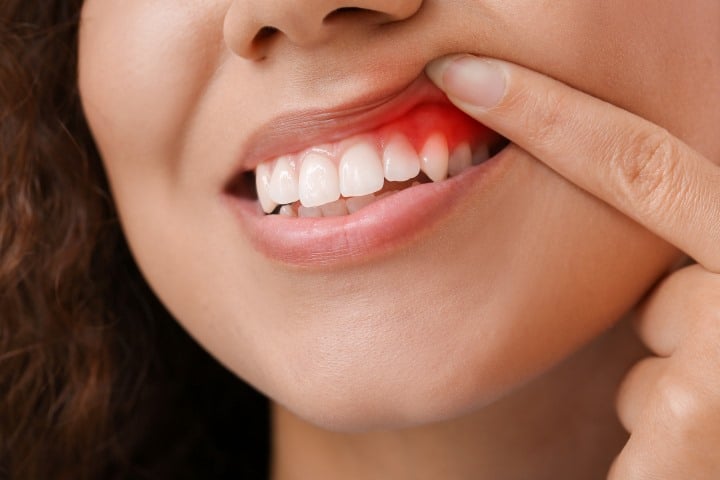
Bleeding gums are signs of a problem that’s going on with your oral health or general health. Your gums might not always bleed and sometimes they would only appear swollen, shiny, and red in color. This is called gingivitis. -it technically means inflammation, and gingivitis exactly means inflammation of the gingiva.
Do Your Gums Bleed When You Brush?
Inflamed gingiva is the body’s response to fight away the bad bacteria that have started living in your mouth. When you don’t brush your teeth, the bad bacteria grow above and below the gum line, which irritates your gum tissues. The plaque, tartar, and calculus that slowly and gradually build up on your teeth and gums are the cause.
It starts to give you the initial sign of gum disease, which appears to you as swollen or bleeding gums. During inflammation, the blood flow to the gums increases, and the gums become red. The inflamed gums are often painful, and they appear swollen. While brushing or eating, you’d unintentionally hurt your gums, and they might bleed.
This is a typical presentation of gingivitis and periodontitis. However, when mild inflammation of the gums is neglected, you may face significant problems like gum sores, receding gums, and tooth loss.
Most of the time, bleeding gums is preventable at home. However, you must see your dentist to prevent gum disease from progressing.
What Causes Gums to Swell and Bleed?
We have reached this point where improper oral hygiene and zero professional help can cause your gingiva to show these signs, which is an indication of some severe oral and general health conditions.
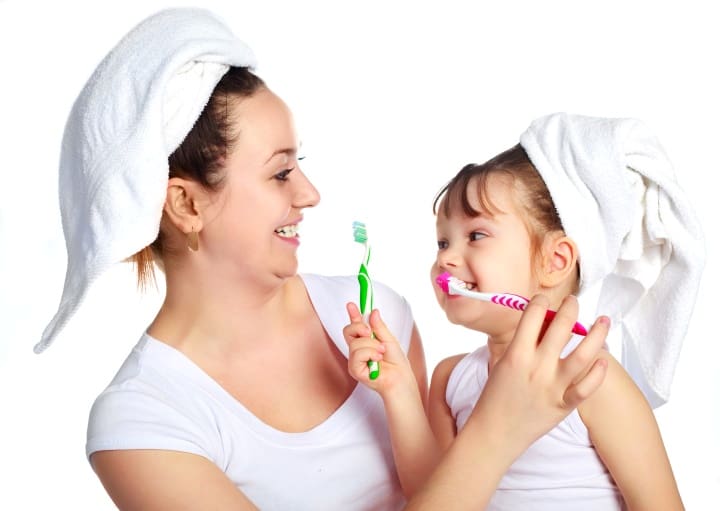
Know 10 leading causes of swollen and bleeding gums.
Gingivitis
Improper brushing and flossing can lead to plaque deposits on your oral tissues. This causes gum irritation and inflammation, leading them to swell and bleed. When the gingiva is inflamed, it’s called gingivitis.
Periodontitis
The inflammation of the soft tissue and the dental bone that holds the teeth will also appear with the sign of swollen gums. The curtain-shaped gums will also lose shape and fall apart, appearing bright red in color.
Pregnancy
Despite impeccable oral hygiene, women tend to develop pregnancy gingivitis in their early pregnancy days. This problem arises due to the hormonal changes in the body that encourage the growth of bacteria in the mouth. However, if you were already suffering from gingivitis, you’d have a greater risk of developing periodontitis.
Periodontitis in pregnancy is alarming. It may cause pre-term birth, low-weight babies, and pre-eclampsia. It’s better to see your dentist or dental hygienist to rule out gingivitis and periodontitis during pregnancy.
Malnutrition
People suffering from eating disorders or living in third-world countries lacking resources might suffer from malnutrition.
People with ill-fitting dentures, gastrointestinal diseases, and mouth-based syndromes have eating and digestion problems, making it difficult for the body to meet the daily nutritional requirements. This brings us to fewer vitamins and minerals in the blood, which slows your immunity.
Too Little Vitamin C
Vitamin C is a water-soluble vitamin that our body needs daily in small amounts. Or else scurvy can occur. Scurvy is a disease that causes spontaneous bleeding from the gums due to the lack of vitamin C.
Lack of Vitamin K

Vitamin K helps in blood clotting. A lack of Vitamin K can cause excessive bleeding from the gums.
Stress
Over time, stress is known to weaken the immune system. The poor immune system allows the bacteria in your mouth to get very active, causing infection. The inflammation of the gums is again presented typically as swollen gums.
Bruxism
Bruxism and clenching cause excessive force on the teeth and the gums. The continuous forces give minor trauma to the gingival tissue. The body’s response to this trauma is seen as swollen gums.
Diabetes
Diabetes increases the glucose levels in the saliva. It causes more bacterial growth and plaque buildup, leading to gum diseases.
Blood Disorders
Bleeding disorders like hemophilia tend to cause the gingiva to bleed more often. In these disorders, individuals lack the ingredients in the blood that cause the blood to clot inside the vessels.
Other Risk Factors for Gum Disease
Gums and Brushing Technique
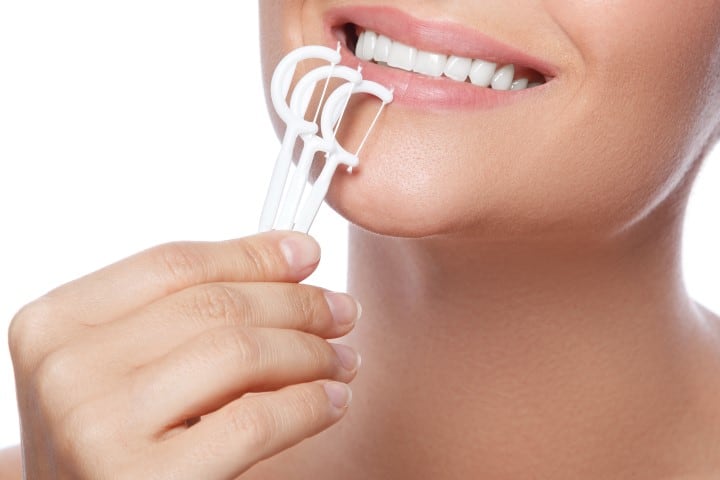
Do your gums bleed whenever you brush? Be careful, then. It is trying to warn you about a problem that has started in your mouth. Healthy gums shouldn’t bleed on brushing with the right brushing technique.
Often, improper brushing techniques and using a hard toothbrush and dentifrices can cause the gums to bleed. You must pay proper attention to these details to know the primary cause of the bleeding gums.
Also, if your gums bleed around a single tooth, you must notice the changes over some days. You must not quit brushing, or you might make the condition worsen.
Gums and Flossing Technique
Do you know you have the most plaque buildup between the two teeth and below the gum line? If you skip flossing between the teeth, the plaque buildup will cause the gum tissue to get sensitive and inflamed, making it more prone to bleed.
However, if you snap dental floss too forcefully, you might hurt your gums, causing them to bleed. So be careful
Flossing once daily is vital for healthy gums and teeth.
Gums and Canker Sores
Canker sores are circular red and white sores that appear on your gum tissues. An existing virus in your body can cause canker sores or irritation of your gums from a few food particles or orthodontic devices.
These sores usually go away themselves in a week or so. However, you need to see your dentist if you see a reoccurrence.
Or else, maintain good oral hygiene and have a balanced diet, and you’re good to go.
Gums and Chemotherapy
Chemotherapy kills cancerous cells in the body; however, it ends up killing normal cells too. Once going under the chemotherapy, you might see some side effects in your oral cavity, which include:
- swollen and painful gums
- dry mouth
- burning mouth syndrome
- infection
- change in the taste
Maintaining a healthy diet and good oral hygiene can help reduce the side effects of the chemotherapy.
Gums and Tobacco Products
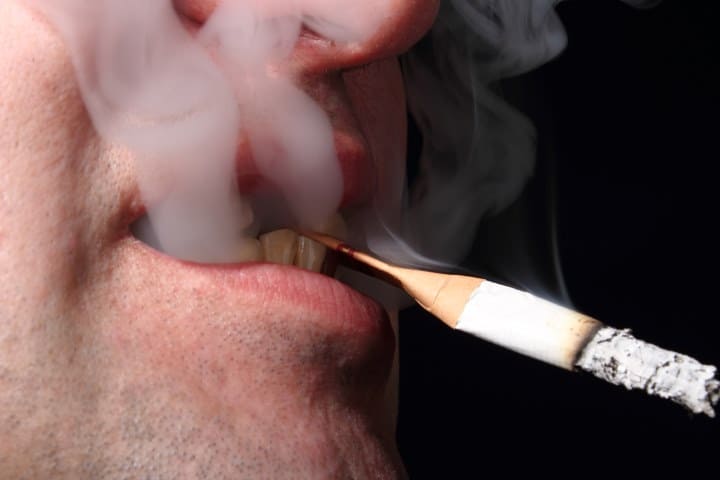
Tobacco products interfere with the normal gum function. It reduces the blood supply to the gingival tissues causing them to discolour and to mask conditions like periodontitis.
Smokers and tobacco eaters are more prone to infection due the reduced immunity, which affects wound healing. Usually, gingivitis and periodontitis are only diagnosed in such patients when the condition has reached its end stage.
You must see your dentist or dental hygienist today if you’re a regular tobacco chewer or smoker.
Swollen Gum Around One Tooth: What to Know
Swelling around one tooth could cause bleeding and gum pain. The reasons can vary from simple to complex. The food might get stuck between the teeth, which may irritate. This can lead to mid form of gum disease in the localized area, which can be reversed after adopting proper oral hygiene habits or getting professional help.
However, sometimes condition might be severe. An infection around your tooth or a dental abscess due to decay and gum disease may cause the gums to swell around the tooth. You must schedule an appointment with your dentist to determine the possible causes.
7 Tips To Reduce Swollen Gums At Home
Brush and Floss Thoroughly:
Use the proper brushing techniques and flossing techniques to remove food debris and plaque from your teeth and gums. Brush twice daily and floss at least once in 24 hours. Don’t miss out on rising water from your mouth once after every meal.
Use a Soft Bristle Brush
A soft-bristle firmer brush must be used to stimulate your gum tissues which will, in turn, improve the overall health of your gums.
Use A Water Flosser
Using a water flosser or a super floss at maximum pressure can help remove the food debris from the hidden places between your teeth and can improve the overall health of the gum tissue while reducing the chances of tooth decay.
Consider Switching Medications
Certain medications for blood pressure, heart diseases, and epilepsy adversely affect gum health. Switching some medications, like using non-calcium channel blockers after consulting your medical practitioner, you can overcome several forms of gum diseases.
Try Switching Toothpaste
Some toothpastes contain ingredients that might cause sore gums. You must try switching toothpaste to know if it’s the case.
Avoid Tobacco Products
Tobacco products not only cause swollen gums, but they also contribute to altering your genes, making them cancerous.
Close Gaps Between The Teeth
When the food gets collected between your teeth, you should expect to see the signs and symptoms of gingivitis. Gum swelling and gums that bleed due to open contact need braces-based therapy or a filling to close the gap.
Medical Treatments To Reverse Swollen Gums
Professional Tooth Scaling & Polishing
Your dental hygienist or dentist will professionally remove tartar and calculus above and below your gum line. He will use an ultrasonic tip to scrape the tooth surface and polish the teeth to prevent the further accumulation of plaque on the roughened teeth surfaces.
Root Planing/Deep Curettage
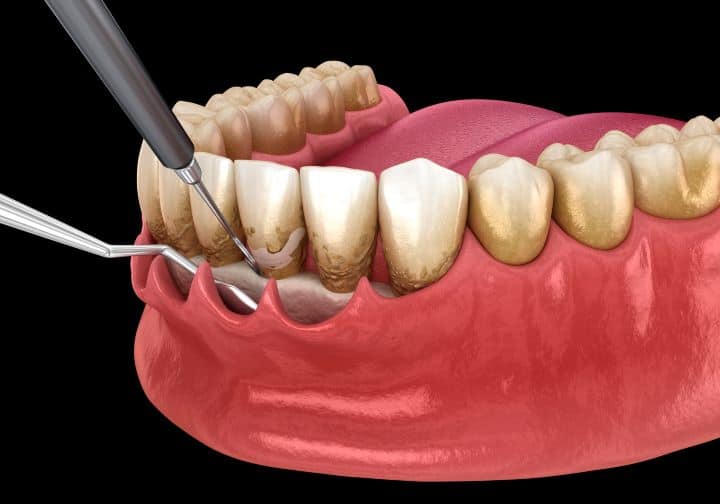
It is the process of removing plaque and calculus from the root surfaces. It minimizes the pockets that are formed between the teeth and the gums.
Oral Antibiotics
Sometimes, oral antibiotics are needed to kill the bad bacteria in our mouth, causing localized gum swelling around a tooth leading to tooth abscess.
Incision & Drainage
Your dentist might need to cut the abscess to drain the pus a few times. It is done alongside with an oral antibiotic therapy.
Root Canal / Tooth Extraction
Swelling around one tooth can be caused by an infection within the tooth. You might need a root canal treatment or a tooth extraction to reverse the gum problem.
Home Remedies To Improve Your Gum Health
Chlorhexidine Mouthwash
Although these antiseptic mouthwashes do not remove plaque and tartar, their antibacterial properties help prevent bacterial growth.
Saltwater Rinses
A teaspoon of salt in lukewarm boiled water used to rinse the mouth 3 to 4 times a day has been found to promote gum healing by reducing serious gum diseases. The saltwater rinses are equally effective as an antiseptic mouthwash, as shown in this study.
Tea Tree Oil Rinses
To treat gum diseases, tea tree oil is known to provide effective anti-inflammatory and healing properties. When a study trial was conducted to see which one was better, the chlorhexidine mouthwash or a tea tree oil rinse, tea tree oil rinse, was declared to be the winner. However, further research has to be conducted for more clarity.
Turmeric Gel
Turmeric is a yellow-colored spice commonly used in Ayurvedic medicine. Turmeric, for ages, has been known to promote healing by showing its anti-inflammatory and antiseptic properties.
FAQs
Can gum disease lead to tooth loss?
Yes. When bacteria invade the gums, they eat up your gums and the bone. The bone holds your teeth in the mouth. When it vanishes, your teeth will fall.
Is bleeding gums a sign of major gum disease?
Bleeding gums often try to bring your attention to mild forms of gum disease. You must

